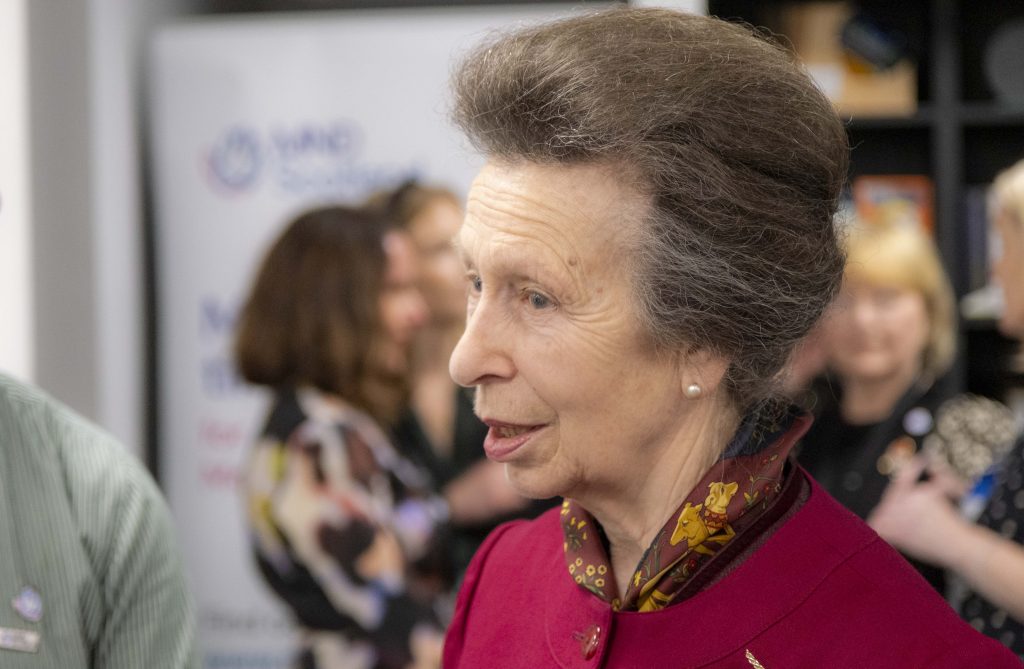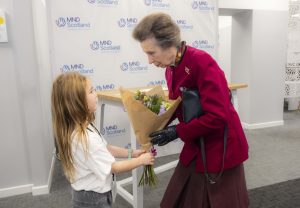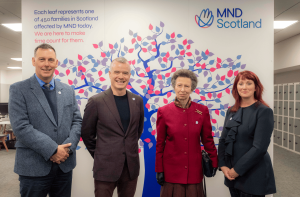What is MND
Find support
I have MND
I am supporting someone
Get involved
Research
About MND Scotland

Her Royal Highness, the Princess Royal, visited MND Scotland in Glasgow on Tuesday, 12 November, to meet the charity’s supporters and people with motor neuron disease (MND).
MND Scotland provides support, and funds research, for people living with motor neuron disease (MND) across the country. Her Royal Highness, who is Patron of the charity, met people living with MND who have supported the charity, and wider supporters who have collectively raised over £500,000 in vital funds.

Guests included Bea Burns, 7, who presented The Princess Royal with a posy of flowers at the end of the visit. Bea took part in MND Scotland’s fun run in September, and her mum, Louise, ran the London marathon earlier this year for the charity.

Louise Burns said: “It was fantastic to be surrounded by so many other MND Scotland supporters who have gone above and beyond to raise money and given their time to help the charity. To be recognised by Her Royal Highness at this event was an honour, and Bea was so excited to present The Princess Royal with flowers. It’s a memory we will both remember for a long time.”
Rachel Maitland, CEO of MND Scotland, said: “It was an honour to welcome Her Royal Highness to Glasgow and share some of the stories of our supporters and people living with MND.
“As Patron, the Princess Royal helps to shine a light on this brutal condition and raise much needed awareness. MND currently has no cure or meaningful treatments. It’s about time there was a cure but until that time comes, we are here to make time count for people living with MND.”

MND is a rapidly progressing terminal illness, which stops signals from the brain reaching the muscles. This may cause someone to lose the ability to walk, talk, eat, drink or breathe.
Photographs by Peter Devlin
Sign up
for newsletter
Get the latest news and events straight to your inbox.
You can help create a world without MND